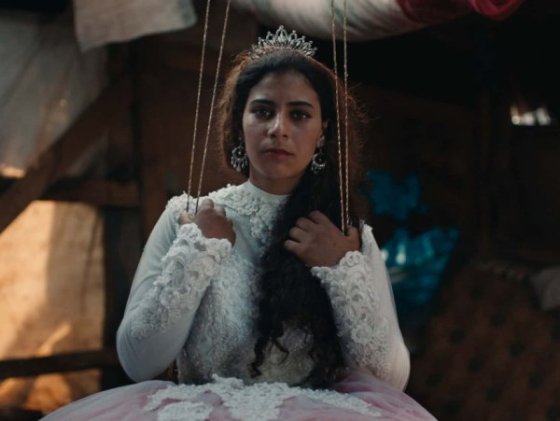Home > Reviews > Shorts > Interview with Rakan Mayasi, director of Trumpets in the Sky
Interview with Rakan Mayasi, director of Trumpets in the Sky
Tuesday 1 February 2022, by ,
Boushra, one of the Syrian potato-picking girls in Lebanon, returns from a long day of work in the field only to learn that today her childhood will come to an end.
Is the character of Boushra based on someone you know?
The character of Boushra, if we speak about characterization, is not based on anyone. The destiny of Boushra, the idea of being forced to marry someone at 14 years old is based on my grandmother’s story. My grandmother was forced to get married when she was 14 – she was born and raised in Tripoli, a city in Northern Lebanon, in the mid-50’s. The idea to work with Boushra, was to have her in the same situation as my grandmother, to share the same destiny because within the group of vegetable pickers (mainly Syrians in the Bekaa Valley) the subject of underage marriage is commonplace. The film is therefore an ethnofiction, which means I worked with non-actors who are being themselves on camera, in their area.
How familiar are you with the plight of Syrian refugees working on those farms in Lebanon? What sort of research did you do?
I am quite familiar with the group of Syrian vegetable pickers (potato pickers in the case of the film) – not all of them are refugees. Potato picking has been a work that Syrians would do because the Lebanese don’t do it. Some of them are refugees who escaped the war in Syria, while others migrate with the season – mainly coming from Hassakah, working in fields in the North (Akkar) and then when the season is over, they migrate to Bekaa Valley. There’s an entire system that functions like a clock. The first time I saw young females returning from work, sitting over each other in a truck, was when I was camping several years ago – they looked at me as if I was coming from another planet – their gaze captured me. I then asked some friends (who are from Akkar) to go and help scout a few locations as part of the research and it was there that I found out how the system works. It’s a very patriarchal system with obviously concentration on child labour – mainly females. They are paid by the day, and their working day begins from 5am to 4pm. It’s terrible. Those who are affiliated with a “warsheh” (or a ‘field workshop’ as they call it) reside in a camp. It might have UNHCR logos on a few tents, but that doesn’t mean that its inhabitants are refugees.
How was the film shoot? Was everyone happy to take part? What conditions did you film in?
The film shoot was very interesting. I do think all the crew, who are in fact good friends of mine, had a good time there. There was magic. There was no script written, just a paper with some scene headlines. It was shot the moment after the first lockdown ended, Lebanon just began falling into the abyss – so we were all in need to create, to move, to collaborate, to have fun… Scouting, casting, workshopping the pickers, the shoot all took place in three weeks.

Can you tell us more about the role of dance and music and your choice to focus on this as opposed to dialogue?
I decided to make a film without dialogues because I firstly wanted to make a ciné-poem (visual poetry comes first). And secondly, because in the world created in the film, I did not feel the need for any word to be spoken at all. I focused on the metaphors in every scene. This was my intention and approach: to put the narrative in the background and look for the metaphors in the foreground. The music in the film is very essential – its presence became some kind of character – a force from the outside that takes us into a transcendence. The dance is the wedding ritual and celebration, where we see men dancing with each other, celebrating the marriage of their female child – to me I saw it as some kind of sacrifice (religious, traditional, economic, etc)
Is there a particular short film that has made a strong impression on you?
Yes, a short film called The Lunch Date – a jazzy black & white film shot in New York in the early 90’s. It’s about subconscious racism in a very subtle way – a highly intelligent film.
What’s your definition of a good film?
One that is conceptually coherent, genuine & honest, and unafraid to explore new grounds and be rebellious.